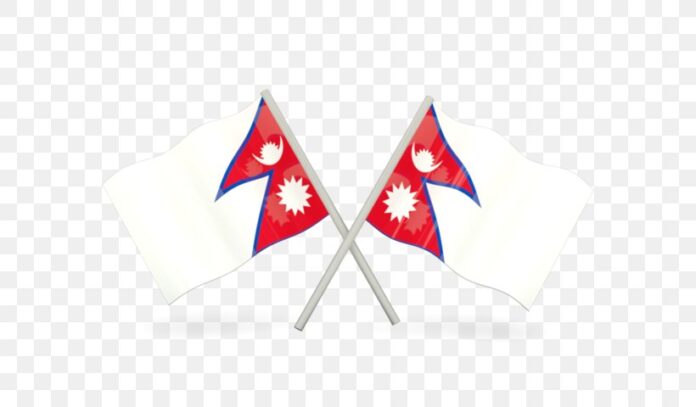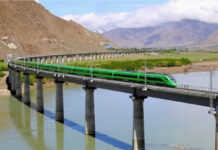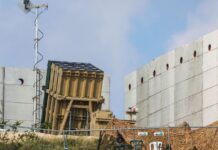Even amidst the COVID-19 pandemic, the ruling Nepal Communist Party (NCP) was engaged more in internal power tussle rather than addressing the issues related to controlling the disease. In such a moment, President Bidya Devi Bhandari, at the recommendation of Prime Minister KP Sharma Oli, stunned the whole nation when she not only dissolved the House of Representatives (HoR), the Parliament on December 20, but also announced the date of mid-term polls for April 30 and May 10, 2021.
By Prof Hari Bansh Jha
However, this move enraged all sections of the society, including many of the political workers of NCP, the Nepali Congress (NC), the Madhesh-based Janata Samajbadi Party (JSP) and the Rashtriya Prajatantra Party (RPP).
As a direct consequence of this development, the ruling NCP split into the already defined factions – one led by Prime Minister Oli and the other by Pushpa Kamal Dahal and Madhav Kumar Nepal. Simultaneously, 13 writ petitions were filed in the Supreme Court against the Prime Minister’s move to dissolve the House. Ever since then, political protests and rallies for and against the dissolution of Parliament became a daily routine affair in Kathmandu and various other parts of the country.
The gulf between the two factions of the NCP became more distinct when they formed separate central committees. Each of them approached the Election Commission for recognition as the sole inheritor of the party. Also, each of them tried to influence the judiciary to give a verdict in their favour.
Pushpa Kamal Dahal went to the extent of threatening to gherao the Singh Durbar, the citadel of power, along with the official residence of the Prime Minister with a million protestors if his demand for the immediate restoration of the Parliament was not addressed. Also, he gave hint to begin a violent revolution. As if this was not enough, he even appealed to Nepal’s two neighbours, India and China, apart from the international community, to use their influence in safeguarding federalism and democracy in Nepal.
On its part, the Prime Minister Oli’s faction also organised rallies in Kathmandu and other cities of Nepal in support of his stand on the dissolution of the House. In his whirlwind visits to different parts of the country, Oli began to present the list of the achievements that his government over the three years of his rule. He was so confident about holding and winning the parliamentary elections that he even asked his political workers to remain prepared for the elections.
Toeing the line of the Prime Minister, the Election Commission drafted the Code of Conduct for the elections and asked the different political parties to discuss the modality to finalise it. The Commission also asked the government to provide for NRs. 7.79 billion as expenditure to conduct the elections.
However, on February 23 the Supreme Court gave a big jolt to Prime Minister Oli’s agenda whenin a landmark verdict it overturned the government decision to dissolve the House. The apex court termed this move as unconstitutional. It annulled all appointments made by the Nepal government after the dissolution of the House. Also, the government was asked to summon the session of the House within 13 days that is by March 8, 2021.
All sections of the Nepalese society, except of course the Oli supporters, hailed the Supreme Court’s verdict describing it as bold and impartial. They maintained that people’s faith in the independence of the judiciary has been restored.
In the House of 275, the strength of CPN lawmakers is 173; of them Prime Minister Oli’s faction has 83 lawmakers; while his rival Dahal-Nepal faction claims the support of 90 lawmakers on his side. Thus, with 63 lawmakers the NC has emerged as the kingmaker. Support of the NC is quintessential for Prime Minister Oli to get the numbers past the midway mark of 138 lawmakers in the House to win the no-confidence motion or even for the opposition parties to defeat him. Either of the two factions of NCP could form the government if it has the support of NC.
Considering the importance of NC, both the factions of the NCP have started intense parleys with the leaders of NC to get its support. But the NC is not in a hurry. It is in a wait-and-watch mood before making up its mind on this issue. This is also because the two factions of the NCP have not yet split into two separate legal entities.
In the meantime, there are reports that both the Indian and Chinese envoys in Nepal have intensified their meetings with different political leaders in Nepal. India seems to be cautiously watching the political developments in Nepal. Recently, Anurag Srivastava, spokesperson of the Ministry of External Affairs of India remarked that India treats the political developments in Nepal as purely its internal affair. China, on the other hand, has expressed anxiety over the political developments taking place in the country. Other international players, including the USA, have maintained silence on this development.
It is a pity that the communist government in Nepal that was able to secure close to a two-thirds majority in the House and had also formed governments in six out of the seven provinces and most of the Village Councils and municipalities at the local level in the country, has miserably failed to meet people’s aspirations of development. Whether in the matter of addressing the COVID-19 pandemic or employment creation, its performance was far from satisfactory. Also, by closing Nepal’s border with India for a long time during the COVID-19 period, it created immense difficulties for both the Nepalese and Indian people while crossing the border. In such a situation, the Supreme Court’s verdict has somewhat pacified the opposition parties that protested and rallied against Prime Minister Oli’s move to dissolve the House. But Oli is determined not to give up power at any cost. Thus, yet an era of political instability is likely to begin as no government in the near future would have absolute majority on its own in the House. Sooner than later, a fresh mandate of the people seems to be unavoidable to restore political peace and stability in the country.








